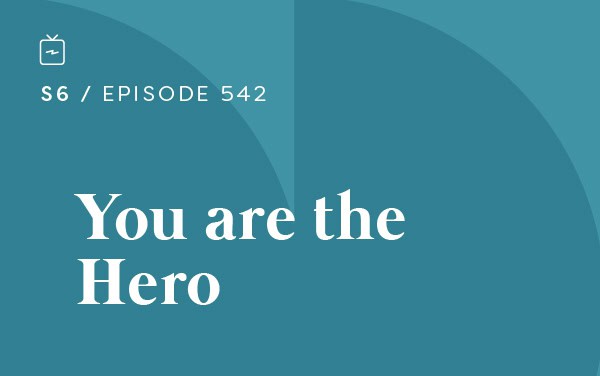
by Kris Oyen | Jul 7, 2025 | Podcast
Podcast: Play in new window | Download
Subscribe to the Recovery Elevator Podcast Apple Podcasts | | More
Today we have Marcy. She’s 42 years old and lives in Seattle, WA. Marcy took her last drink on October 15th, 2020.
This episode brought to you by:
Better Help – 10% off of your first month #sponsored
Exact Nature – 20% off your order with code RE20
Paul just finished the rough draft of his second book entitled Dolce Vita, The Good Life and expects it to be released this September.
[00:00] Thoughts from Paul:
In a recent article presented on Newsbreak entitled Alcohol is Killing More Americans Today than 20 Years Ago, it shares that mortality from liver disease has increased significantly across most demographic groups in the US from 1999 to 2022. Death from liver disease went from 6.7 to 12.5 deaths per 100,000 people. The annual increase was higher among women than men, and young people showed “concerning trends”. And of course, minority populations are hit hardest. American Indian and Alaska Native populations, faced the highest death rates. Those increased from about 25 to nearly 47 per 100,000 over the last 20 years.
While this podcast is supposed to be uplifting and positive it also has to be real. The spirit alcohol is claiming more lives than ever.
Remember last week’s episode titled The Quiet Revolution? You are part of the not so anonymous army that solves this… Your quitting drinking is the answer for everyone else who struggles with addiction. You’re turning your gaze inward when people in charge are pointing their finger outward. You are the hero.
[00:00] Paul introduces Marcy:
Marcy is 42 years old and lives in Seattle, WA with her partner and their cat. She works at a production company as a creative producer and makes psychedelic music videos in her spare time. For fun, she enjoys the outdoors and says the Pacific Northwest is a beautiful place to be outside.
Marcy says she was a very shy kid with a lot of anxiety. She had her first drink when she was 16 and by 18, she had a fake ID and spent a lot of time in bars and drinking almost daily. Her drinking never looked normal, Marcy says.
Marcy had her first blackout at her bachelorette party in her mid-twenties. Those began to become normal for her which began to concern her. Marcy would tell everyone that she was quitting drinking but was never able to succeed.
Alcohol began to put a strain on Marcy’s marriage. She realized she needed to do something to fix it. She began to attend AA and tried to work the steps but was struggling with being honest with herself and others about her problem and continued to drink.
Marcy and her partner ended up divorcing, which sent her on a downward spiral since she no longer had anyone to be accountable to. After she was robbed one night, her parents talked her into going to inpatient rehab. She was supposed to stay for 30 days but only made it through 11 and decided to attend outpatient rehab instead. Marcy was able to fake her way through the outpatient program while she was still drinking.
From 2016 to 2019, Marcy says she was on a merry-go-round from hell. She would try to change, fail and then beat herself up. She returned to AA, found a sponsor and had a service position that helped her build a new routine. She made it to 30 days sober and then relapsed which sent her back into a cycle that Marcy says was worse than ever.
An extreme rock bottom found Marcy quitting again. After two months without drinking, a friend wanted Marcy to attend a meeting she was speaking at. This led Marcy to return to AA. She threw herself all-in and attended a meeting every day for the next year.
These days life for Marcy is mellow instead of chaotic. She says she has the capacity to explore her creativity, goes to work every day and enjoys yoga regularly. Her tools for dealing with anxiety are breathing and knowing her boundaries and limits.
Recovery Elevator
You took the elevator down; you’ve got to take the stairs back up.
We can do this.
RE on Instagram
Recovery Elevator YouTube
Sobriety Tracker iTunes
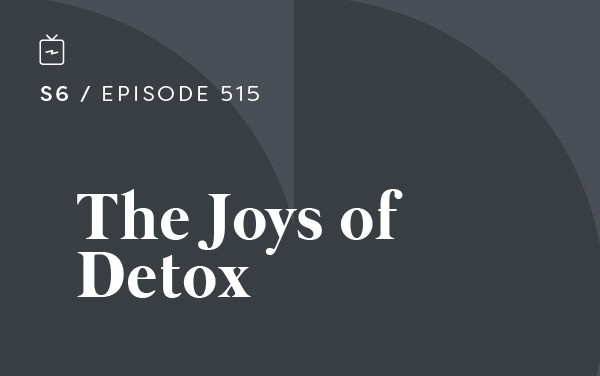
by Kris Oyen | Dec 30, 2024 | Podcast
Podcast: Play in new window | Download
Subscribe to the Recovery Elevator Podcast Apple Podcasts | | More
Episode 515 – The Joys of Detox
Today we have Patrick. He’s 43 years old from Montreal, Quebec and took his last drink on November 11th, 2024.
Join Recovery Elevator for our Restore Dry January course. This is our most intensive course, and it’s all about accountability. This is the best setup we’ve had yet for this course as participants get access to all of Café RE, including the chats and the community when they sign up for the course.
Recovery Elevator’s first ever Men’s Retreat will be April 5th through the 12th in Costa Rica. We’ve got space for 12 guys. Registration for this event opens December 30th at 8AM EST.
AG1 – offering new subscribers a free $76 gift when you sign up
[3:58] Thoughts from Paul:
**DISCLAIMER** alcohol is the most dangerous substance to detox rom. Listen to your body and seek medical attention if you think you need to.
It doesn’t matter what you’re eliminating from your diet, the body does not like change. Studies have shown that when we take that first step forward in making change, the body can and will create chemicals of discomfort to pull you back into your comfort zone.
Part of the withdrawal from alcohol is your dopamine center learning how to create it’s own dopamine again, but much of this discomfort is your body rebuking any change whatsoever. Yes, there will be some discomfort but after doing Recovery Elevator for ten years, Paul says that not one person he has met has regretted there decision to quit drinking. It’s a one-way street once you begin to feel and see the benefits.
[7:57] Paul introduces Patrick:
Patrick is 43 years old and lives in Montreal, Quebec. He works in the administrative field at a hospital, and he enjoys running (5k every day), spending time with his friends and watching TV.
Patrick says he was born prematurely and wants to share that Fetal Alcohol Disorder exists. Both of his parents were alcoholics, and he had to parent them early in his life. At the age of 13, Patrick became responsible for his mother’s care when she was diagnosed with Korsakoff Syndrome. He tried to help get her sober, but she was unable to and she ended up passing when she was 42 and Patrick was 16.
Patrick says that while in school he drank mainly on the weekends with friends. After school he moved to Montreal and says that drinking was glorified in his community. This continued until his mid thirties when he met someone and fell in love. His drinking stopped without him noticing.
Their relationship changed when his partner decided to move to the US. They ended the romantic relationship but remained close friends. Not long after COVID hit, Patrick and his friend were talking on the phone, and his friend told him that he was struggling with addiction. Patrick was planning to meet up with him and talk about their common issues, but unfortunately his friend passed away from an overdose.
Not being able to have any closure after his friends passing, Patrick’s drinking picked up from functional to full time. He started to recognize his mother in himself and decided to quit drinking cold turkey. This lasted for several months but then he landed back where he was.
This November Patrick quit again and says this time he feels more stable. He has sought assistance from doctors and attends 12 step meetings along with mediation and running. He realizes that one drink is not an option. In order to reinforce the plan to stay sober, Patrick meditates and has learned to say “no” to events that will challenge his sobriety, he is avoiding places where he used to purchase alcohol, he has friends he can call on and he does at least seven meetings each week.
Patrick’s parting piece of guidance: listen to your inner voice. Give 12 step meetings a try. Have an open mind and listen. You’ll learn about others and most importantly, you learn about yourself.
Recovery Elevator
Go big, because eventually we’ll all go home.
I love you guys.
Café RE
RE merch
Recovery Elevator YouTube
Sobriety Tracker iTunes
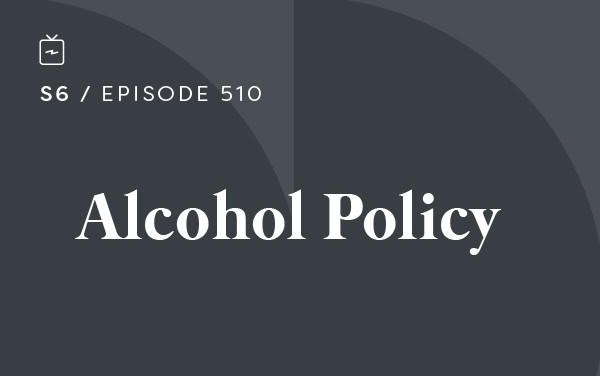
by Kris Oyen | Nov 25, 2024 | Podcast
Podcast: Play in new window | Download
Subscribe to the Recovery Elevator Podcast Apple Podcasts | | More
Episode 510 – Alcohol Policy
Today we have Kevin. He is 42 years old, from Fresno, CA and is celebrating 500 days at the time of this recording.
Sponsors for this episode:
Better Help – code ELEVATOR for 10% off of your first month
AG1 – free gift with your first subscriptions, in addition to their Welcome Kit.
Restore – registration opens Monday December 2nd. This is Recovery Elevator’s most intensive AF course for someone looking for extra accountability for Dry January.
[03:34] Thoughts from Paul:
Happy Thanksgiving Week! Life is not perfect but there is so much to be thankful about. Paul shares that when a sponsor first challenged him to write down five things he was grateful for each day, he could not do it. Nowadays he recognizes so much to be thankful for.
This entire week is all about gratitude and giving thanks. This is a tradition in our modern culture that tells us to come together as a family and give thanks. Plus, there’s pumpkin pie.
A tip to help you stay sober this Thursday and throughout the week: create accountability, AKA, Burn the Ships. It doesn’t have to be with everyone in your family, but at least somebody who isn’t your dog has to know you won’t be drinking. And don’t forget to bring your own drink of choice to any gathering you attend.
[08:32] Paul introduces Kevin:
Kevin is 42 and lives in the Fresno area. He owns and operates a commercial landscape business. He is married and has one daughter in college and a son in third grade. For fun, he enjoys nature, reading, CrossFit, playing golf and coaching his son’s sports teams.
Kevin says he first drank in high school, and it was the typical weekends and parties, but nothing too dramatic. In college it turned into regular Thursday through Saturday thing. He equated drinking with a good time and doesn’t really have many regrets.
Right before Kevin’s senior year of college, he found out his long-time girlfriend was pregnant. They ended up getting married and Kevin went on to finish college. Shortly after his daughter was born, he completed college, and his wife and daughter moved in with him.
Drinking became a reward for him and happy hours were commonplace. At one point he recalls telling a coworker he needed to quit drinking during the week. This was his first thought about moderating. He says it didn’t stick.
Kevin’s wife was his drinking partner and when she decided to quit for health reasons, Kevin opted to continue. Over time, it strained their relationship, and she would ask him to cut back and moderate. Kevin would try, but it wouldn’t last long. He started to realize it was a problem when he was concealing some of his drinks so that she wouldn’t know how much he had.
After discovering the RE podcast, Kevin didn’t initially hear anyone he identified with. Once he did, however, he realized that he was not alone with the issues he was having.
He knew he had to quit but wasn’t sure when. Kevin didn’t think AA would be for him. He eventually went to some meetings and would get a little time away from alcohol but would go right back to it mainly in isolation. The cycle continued for a while.
Now with 500 days, Kevin reflects that initially focused on how he could get to 200 days instead of the day in front of him. He had to really embrace AA in order to change his thinking. Taking things one day at a time and being present has become important to Kevin. Acknowledging and moving past some resentments was very helpful for him.
Since ditching the booze, Kevin says that he is able to deal with whatever happens in life without the need to numb. He has a lot less anxiety and stress about things and has more confidence that alcohol will not fix things for him.
Kevin’s parting piece of guidance: don’t quit quitting.
Recovery Elevator
We took the elevator down; we got to take the stairs back up.
We can do this.
I love you guys.
RE merch
Café RE
Recovery Elevator YouTube
Sobriety Tracker iTunes
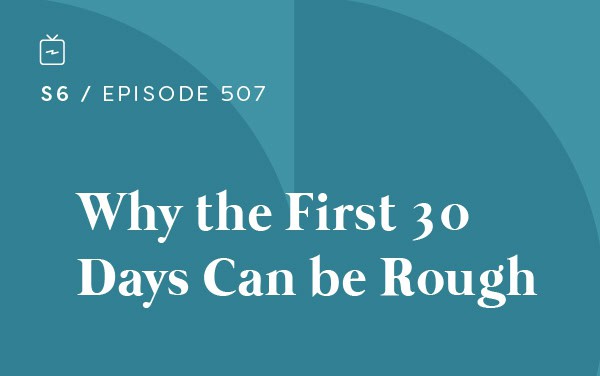
by Kris Oyen | Nov 4, 2024 | Podcast
Podcast: Play in new window | Download
Subscribe to the Recovery Elevator Podcast Apple Podcasts | | More
Episode 507 – Why the First 30 Days Can be Rough
Today we have Jason. He is 56 years old and from Minneapolis, MN. He took his last drink on December 31st, 2021.
Sponsors for this episode:
Better Help – code ELEVATOR for 10% off of your first month
[01:06] Intro:
In today’s episode you are going to hear Jason say that he doesn’t identify as an alcoholic. How many alcoholics do you think have been interviewed on the podcast? Paul says the answer is zero.
Zero because whenever people hear the word alcoholic, the first things that come to mind are homeless, living under a bridge, brown paper bag. Zero guests have fit this description.
Studies show that only 5% of alcoholics are actually homeless, living under a bridge, etc. However we are all walking the same path regardless of how far it takes us.
It’s never too late to get help, and we’ve got your back. The real villain here is alcohol, not the addict. In 2024, you can be alcohol-free, you can be sober, you can be sober curious, you can be an alcoholic in recovery. At the end of the day it’s all about getting honest with yourself.
[04:16] More thoughts from Paul:
Drinking can be challenging in the first 30 days. Paul shares with us a piece about this that uses an analogy comparing our brain and neurotransmitters to toy boxes and toys.
During recovery, our brain is resetting itelf now that the alcohol is halted. This will take time. A couple of week to a couple of months. Go slow, be kind to yourself and let the body heal. Your part is not drinking, and the universe solves the other part which is time.
[07:36] Paul introduces Jason:
Jason has lived in Minnesota all of his lfe, currently in Minneapolis. He is married with two sons, 14 and 12. He works in sales. Jason says for fun, he is getting into golf and he is a pilot who enjoys flying for fun as well as for business.
Jason says he had his first drink as a junior in high school. It wasn’t a remarkable event but he ended up becoming a typical drinker: parties and weekends, etc. He got married when he was 21 to his first wife, and she did not drink. Therefore Jason didn’t drink much during his 20s. The company he worked in sales for, had a big drinking culture that Jason started to get more involved in. Around the same time his marriage wasn’t working out and he found himself divorced and drinking more often afterwards. At the time it didn’t feel out of control although in hindsight Jason feels it was excessive – almost daily and every weekend complete with hangovers.
In his 40s Jason met his current wife who is a social drinker. His drinking continued, but he did begin to question it. He began to try a lot of methods of moderations, some of them worked for him but it became exhausting after doing it for about five years. On December 17th of 2021, he had decided he was going to quit. He says he drank a lot for the first week or so after that as a reminder to himself of how bad it was.
On New Year’s Eve, Jason had two beers and ended up dumping out half of his third. He was done. Jason said the first month went well and the biggest thing he missed was having something to look forward to. Once he made the decision it wasn’t that hard for Jason.
Jason shares that he read a lot and listened to podcasts which really helped him. He mentions the book Almost Alcoholic which helped him identify that he was in the middle ground with his drinking. Jason has had no desire to return to drinking and his cravings were few and far between over the last nearly three years. Going forward, Jason wants to find more hobbies and things he enjoys doing with his kids. He enjoys the subtle calm that is in his life now.
Jason’s parting piece of guidance: you don’t have to identify as an alcoholic for quitting to be the best option for you.
Recovery Elevator
We took the elevator down, we got to take the stairs back up.
I love you guys.
We can do this.
Café RE – promo code OPPORTUNITY waives the set up fee
RE merch
Recovery Elevator YouTube
Sobriety Tracker iTunes
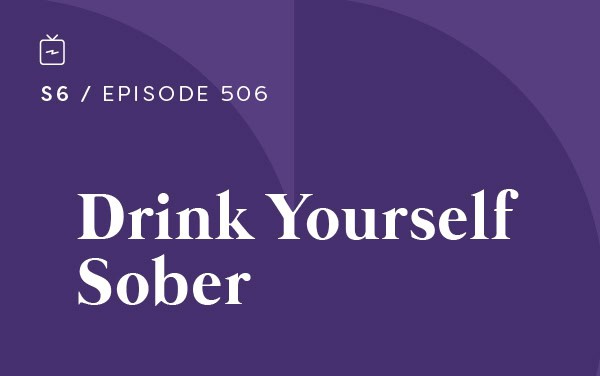
by Kris Oyen | Oct 28, 2024 | Podcast
Podcast: Play in new window | Download
Subscribe to the Recovery Elevator Podcast Apple Podcasts | | More
Episode 506 – Drink Yourself Sober
Today we have James. He is 33 years old from Birmingham, UK and he took his last drink in May 30th, 2023.
Café RE is now off of Facebook and we have our own app. If you’re looking for accountability with others who are ditching the booze or have already done so, we’d love to have you.
Sobertopia – a platform for all things Alcohol-Free
Drop the Bottle
Sponsors for this episode:
Better Help – code ELEVATOR
AG1
[03:57] Thoughts from Paul:
Today’s guest James said something that sparked a dormant memory for Paul, which was to drink yourself sober. Paul shares how in the summer of 2014, he knew he was quitting drinking, it was just a matter of time. He was reading quit lit and the alcohol was no longer working for him.
Trying to expedite the quitting, Paul drank with the intent to give himself more reasons to quit. Even though he does not recommend anyone do this he shares this as a reminder that paid that we listen to, embrace, and no longer run from can be one of the best teachers. It can shine light on where not to go. And pain is also the crack where the light of healing enters.
As Paul has mentioned in a recent episode – it takes what it takes, and he had to embrace the pain and even purposely step into it more in order to start the healing.
[08:52] Paul introduces James:
James is 33 years old; he works in administration at a university. He is a musician in a few bands and has been doing a lot of touring. He also enjoys reading, walking with his partner and spending time with his cats.
James shares that he doesn’t remember his first drink but remembers a few occasions in his teens where he went overboard when there was free access to alcohol. He says it was clear from the start that he was “all or nothing” when it came to drinking.
Between ages 18 and 26, James worked in bars and was around alcohol a good bit. He also got introduced to other drugs but saw his usage of alcohol and drugs just part of the lifestyle. Both James and his partner had transitioned to 9-5 jobs. He says he took the lifestyle with him, but she did not. This contributed to them drifting apart. Since he was able to work hard and party hard, he didn’t see an issue.
After moving to another town alone, James says there was less of a balance between work and play and on a few occasions feels he should have lost his job. If anyone ever spoke to him about his drinking, he would brush it off as he was just living in the moment and as an artist the struggle would benefit his work.
Off and on, James would moderate and was able to quit for a bit in 2020. After a little over 100 days, he felt like the monotony of the day-to-day got to him and he started drinking again. He didn’t care much about his job and was somewhat relieved to be able to go to gigs with the bands and not worry about not drinking.
He ended up moving back to Birmingham and reconnecting with his partner. They moved in together with the rule that he wouldn’t bring that lifestyle home. James started the job he has now and started only drinking on the weekends or at gigs with the band. Over time, he recognized that alcohol was creating a lot of problems for him and it was no longer much fun.
On May 31st James decided he had to let it go for good. It wasn’t his first rodeo, so he knew what to expect. Accepting that nothing worth doing is going to be easy was helpful for him. He is making living amends with his partner and says it means more to him than he can put into words that she has been there for him through it all. James treats every day like day one and checks into sober communities often. He says he scared himself straight and keeps a mindfulness around cravings and that drinking one help anything.
James’ parting piece of guidance: If you’re thinking about it, you probably need to. There is no shame in falling and picking yourself back up.
Recovery Elevator
You took the elevator down, got to take the stairs back up.
We can do this.
RE merch
Recovery Elevator YouTube
Sobriety Tracker iTunes







